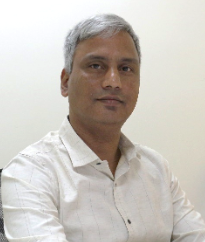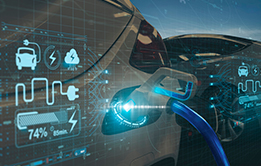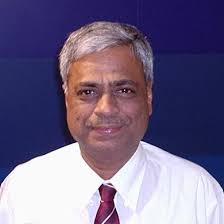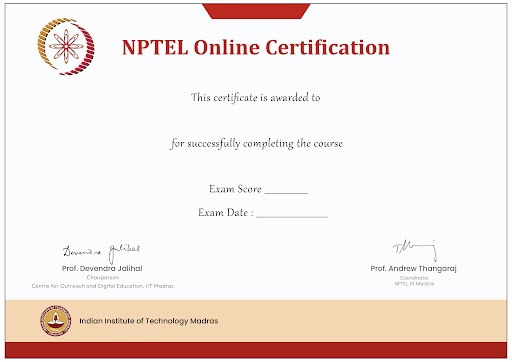Description
Electric Vehicles (EV) and Renewable energy (RE) are the two important technologies which help the earth to heal itself in face of impending Global warming. India is accelerating use of EV and RE over the next decade. This four-part course, each for about four weeks, help one get a fairly strong grip on what the technology involves. It is fundamental and yet deep enough. The course designed for students with any engineering background, gives a good grasp at not only the technology but also the economics (in Indian context) for wide deployment of the technology. The course is taught by Prof. Ashok Jhunjhunwala, IIT Madras along with his colleagues Prof. Kaushal Jha and Prof. Kannan on NPTEL Platform. The four modules of the course are as follows:
Part 1- Introduction to Electric Vehicles and Vehicle subsystem requirements,
Part 2 – Fundamentals of Battery Cells and Pack design
Part 4 – Renewable energy and storage.
INTENDED AUDIENCE
B. Tech 4th year / M. Tech / MS / PhD or working professionals in EE, ECE, Mech, Engineering Design, Aerospace Engineering students interested in Electric Vehicles
PREREQUISITES
INDUSTRIES SUPPORT
ABOUT THE INSTRUCTOR
Ashok Jhunjhunwala, Institute Professor at IIT Madras, did his B.Tech degree from IIT Kanpur and MS and PhD from University of Maine, USA and was a faculty at Washington State University, USA for a year and half before joining as a faculty at IIT Madras in 1981. In 2017-18, he was on sabbatical from IITM and was Principal Advisor to Minister of Power, MNRE, and Railways, Government of India, New Delhi.
Prof. Jhunjhunwala is considered a pioneer in nurturing Industry-Academia interaction in India towards Research and Development, Innovation and Product Development. He conceived and built India’s first university affiliated business park (IIT Madras Research Park) to promote Industry-Academia Research and Development collaboration.

Kannan Lakshminarayan is currently a Professor of Practice in the department of Engineering Design at the Indian Institute of Technology, Madras where he leads a team designing and developing High Efficiency Traction Motors for electrical vehicles. His research interests revolve around electro-mechanical engineering for making products that impact livelihoods and sustainability. He is the founder and director of Fractal Foundation – a one of a kind “ideas accelerator” focused on bringing new technologies to the market, including Microspin and Skillveri. In addition, Kannan’s passion for innovation-driven engineering led him to co-found and direct several tech companies like Vortex and Motorz. Kannan received the Distinguished Alumnus Award of the Indian Institute of Technology Madras 2014, in recognition of his innovations and transformative work in sustainable solutions for rural India.

Dr. Kaushal Kumar Jha is an Adjunct Professor in Department of Engineering Design at IIT Madras. He is CEO of Center for Battery Engineering and Electric Vehicle – CBEEV at IIT Madras and Center for Excellence in Energy and Telecommunication, (CEET), a R&D Society of IIT Madras. There he contributes to India specific cutting-edge R&D in Li-ion Battery Packs, Motor Thermal Management, Charger Development, Management & Analytics and Recycling of Li-ion cells. He is also the Principal Investigator and Founder of NoonRay Energy Pvt. Ltd. NoonRay specializes in thermal management solutions for Automotive, EV, Aerospace, Commercial HVAC, and Electronics. He consults for various organisations in the field of automotive thermal and energy management. He holds a Ph.D. from IIT Madras in Mechanical Engineering and has more than 10 years of experience in industrial and academic R&D.
Linkedin Profile: https://www.linkedin.com/in/dr-kaushal-kumar-jha-8a85737/




Ashutosh yadav –
Awesome initiative
Good job sir
Jai hind
Lakshmikanthan PRABHAKAR –
The future of sustenance of life on this planet earth is so unfortunately dependant on the humans that want to live here, conquer this planet & if possible other places in this universe. Sadly it is this very humans that are on the perilous course to destroy their first base, the earth, previously unknowingly & now knowingly due to their greed. It’s a wonderful idea from the IITM to bring in awareness & create a possibility for all those who care to understand learn & contribute to STOP this self destruction in one of the core areas where usage of fossil fuels could perhaps be completely replaced by renewable environment friendly technology to provide for sustainable motion through electric vehicles- This & few other initiatives could perhaps save this planet from the impending catostrophic self destruction. I wish the teachers & students all the best in this endeavour to save our planet
Dr. Srinivas –
Good One
Subodh Pande (verified owner) –
Best course for beginner, comprehensive enough to understand overall EV technology & requirements. Will suggest if someone need to begin from zero knowledge about EV.
Anubhav Pratap Singh (verified owner) –
Informative course.
tareypc@gmail.com –
Excellent Sir.
MALI SATYA NAGA KRISHNA KONIJETI (verified owner) –
Has any of your universities considered this course and given any academic credits? please inform me. really I need this information. thank you.
krishna.kmsn@gmail.com